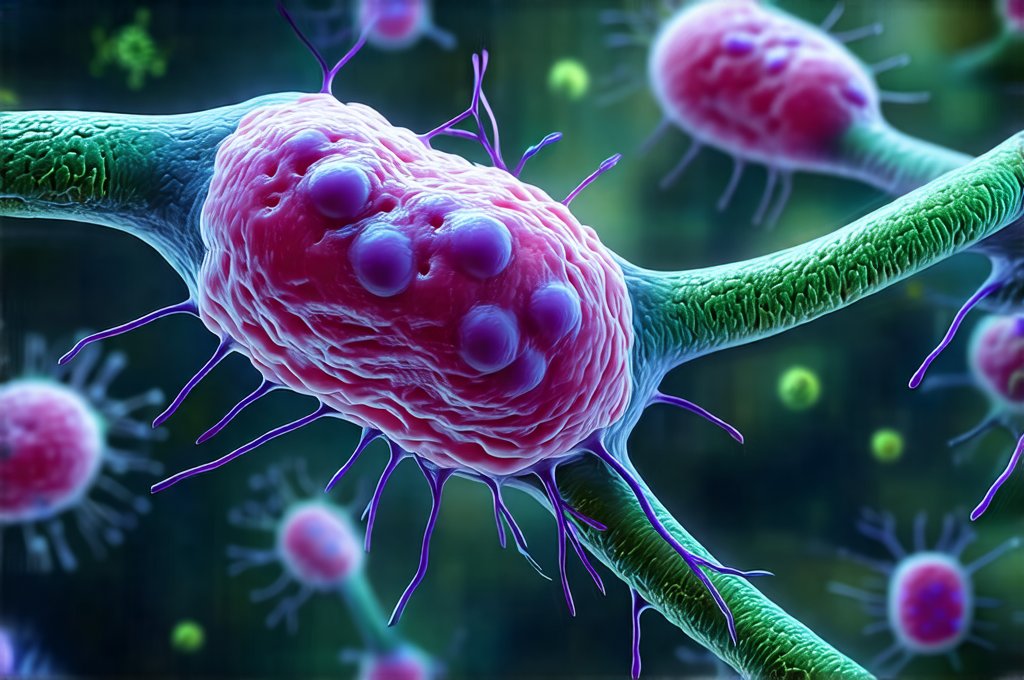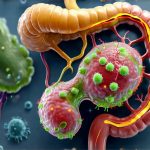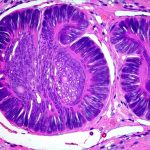The intricate relationship between our gut microbiota – the trillions of microorganisms residing in our digestive tract – and overall health is rapidly becoming one of the most exciting areas of modern research. For decades, we viewed bacteria primarily as potential pathogens, needing to be eradicated with antibiotics. However, it’s now abundantly clear that a vast majority of these microbes are not only harmless but essential for maintaining homeostasis within the body. This symbiotic relationship extends far beyond digestion; our gut microbiota profoundly influences immune function, neurological health, and even susceptibility to chronic diseases. Understanding how this ‘internal ecosystem’ operates is crucial to unlocking new therapeutic strategies for a wide range of conditions, including inflammatory disorders, chronic pain syndromes, and autoimmune diseases.
The sheer complexity of the gut microbiome is staggering. It’s not simply about the presence or absence of specific bacteria but also their diversity, abundance, metabolic activity, and spatial organization within the gut. Factors like diet, genetics, stress levels, antibiotic use, and geographical location all play a role in shaping this microbial landscape. Disruptions to this delicate balance – known as dysbiosis – have been linked to numerous health problems. The mechanisms by which the gut microbiota exerts its influence are multifaceted and involve direct interactions with immune cells, production of bioactive molecules, and modulation of the nervous system via the ‘gut-brain axis’. This article will delve into these connections, specifically exploring how the gut microbiome regulates inflammation, pain sensitivity, and autoimmunity.
Gut Microbiota & Inflammation Regulation
Inflammation is a fundamental biological process necessary for healing and defense against pathogens. However, chronic, low-grade inflammation underlies many prevalent diseases, including cardiovascular disease, type 2 diabetes, obesity, and autoimmune conditions. The gut microbiota plays a pivotal role in calibrating the inflammatory response, acting as a key interface between the host immune system and the external environment. A healthy microbiome promotes immune tolerance, preventing excessive reactions to harmless stimuli like food antigens or commensal bacteria themselves. Conversely, dysbiosis can trigger an overactive immune response, leading to chronic inflammation.
The mechanisms by which the gut microbiota regulates inflammation are diverse. One crucial aspect is the production of short-chain fatty acids (SCFAs), such as butyrate, propionate, and acetate, through the fermentation of dietary fiber. SCFAs not only provide energy for colonocytes (cells lining the colon) but also have potent anti-inflammatory effects. Butyrate, in particular, has been shown to enhance gut barrier integrity, reduce the production of pro-inflammatory cytokines, and promote the differentiation of regulatory T cells (Tregs), which are crucial for suppressing immune responses. Moreover, specific bacterial species can directly interact with immune cells, modulating their function. For example, certain Lactobacillus strains have demonstrated an ability to dampen inflammatory responses by influencing cytokine production and enhancing Treg activity. Understanding how menstrual cycles influence acid production is also important in this context.
Furthermore, the gut microbiome influences the development and maturation of the immune system itself. Early life colonization is particularly important, shaping the developing immune system and establishing long-term immunological tolerance. Disruptions during this critical period can increase the risk of allergic diseases and autoimmune disorders later in life. The gut barrier acts as a physical and functional boundary between the host and the microbial world; maintaining its integrity is essential for preventing ‘leaky gut’ – a condition where increased intestinal permeability allows bacterial products to enter the bloodstream, triggering systemic inflammation. A diverse and balanced microbiome strengthens this barrier, while dysbiosis can compromise it. Considering gut acidity and improve nutrient absorption will support a healthy microbiome.
Pain Sensitivity & The Gut-Brain Axis
The link between gut health and pain perception has become increasingly recognized in recent years. Chronic pain conditions – such as fibromyalgia, irritable bowel syndrome (IBS), and chronic regional pain syndrome – often involve altered gut microbiome composition and increased intestinal permeability. This connection is largely mediated through the gut-brain axis, a bidirectional communication network involving neural, hormonal, and immunological pathways. The microbiota can directly influence brain function via several mechanisms:
- Vagal Nerve Stimulation: The vagus nerve serves as a major highway for information transfer between the gut and the brain. Microbial metabolites like SCFAs can activate receptors on vagal afferent neurons, influencing pain processing in the central nervous system.
- Neurotransmitter Production: Gut bacteria produce neurotransmitters such as serotonin, dopamine, and GABA, which play critical roles in mood regulation, stress response, and pain modulation. Dysbiosis can disrupt neurotransmitter balance, potentially contributing to chronic pain syndromes.
- Immune Activation & Neuroinflammation: As discussed earlier, gut dysbiosis can trigger systemic inflammation, including neuroinflammation – inflammation within the brain. Neuroinflammation is increasingly recognized as a key driver of chronic pain and neurological disorders.
Specifically in IBS, altered gut microbiota composition has been associated with visceral hypersensitivity—an increased sensitivity to stimuli within the gut. Certain microbial metabolites can directly activate nociceptors (pain receptors) in the gut, contributing to abdominal pain and discomfort. Interestingly, modulating the gut microbiome through dietary interventions or probiotic supplementation may help reduce visceral hypersensitivity and alleviate IBS symptoms. The impact isn’t limited to gastrointestinal pain; studies suggest that alterations in the gut microbiome can influence pain sensitivity in other regions of the body, potentially affecting conditions like fibromyalgia. It’s important to consider pain after eating and how doctors investigate it when assessing chronic pain.
Autoimmunity & Microbial Dysregulation
Autoimmune diseases – where the immune system mistakenly attacks the body’s own tissues – are characterized by chronic inflammation and significant morbidity. A growing body of evidence suggests that the gut microbiota plays a crucial role in the development and progression of these disorders. The mechanisms involved are complex, but broadly center around disruptions to immune tolerance and increased intestinal permeability.
The ‘hygiene hypothesis’ initially proposed that reduced exposure to microbes early in life contributed to the rise in autoimmune diseases. However, it’s now understood that it’s not simply about lack of exposure but rather altered microbial communities and loss of diversity. Dysbiosis can lead to a breakdown in immune tolerance, allowing autoreactive T cells (T cells that attack self-antigens) to escape control. Certain bacterial species may even mimic host antigens—a phenomenon called molecular mimicry – triggering an autoimmune response. For example, Klebsiella pneumoniae has been implicated in the development of ankylosing spondylitis through molecular mimicry with HLA-B27, a genetic marker associated with the disease.
Furthermore, increased intestinal permeability allows bacterial products and undigested food particles to enter the bloodstream, triggering systemic inflammation and exacerbating autoimmune responses. Specific autoimmune diseases have been linked to distinct microbial signatures. For instance, patients with rheumatoid arthritis often exhibit alterations in gut microbiome composition compared to healthy individuals, including decreased abundance of Prevotella species and increased levels of Collinsella. Modulating the gut microbiota through dietary changes or fecal microbiota transplantation (FMT) – transferring stool from a healthy donor to a recipient – is being explored as a potential therapeutic strategy for autoimmune diseases, although more research is needed. Restoring microbial balance may help re-establish immune tolerance and dampen autoimmune inflammation. Individuals experiencing weight loss and gut pain should seek screening options. Learning about meal texture and temperature can also support healthy digestion. Considering how to eat with mindfulness may prevent digestive distress.
The exploration of the gut microbiome’s influence on health represents a paradigm shift in our understanding of human physiology. While much remains to be discovered, it’s becoming increasingly clear that nurturing a healthy gut ecosystem is essential for maintaining overall well-being and preventing chronic diseases.


















